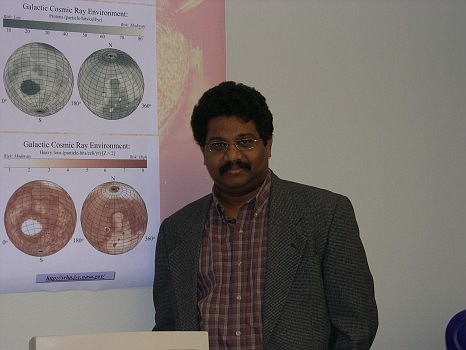PVAMU Offers Breathtaking View of Rare Total Solar Eclipse
Prairie View A&M’s observatory complex is a world-class facility that can study solar activity, lunar meteor impacts, and distant stars and galaxies.
Jo-Carolyn Goode | 3/26/2024, 2:56 p.m.
Prairie View A&M will host a viewing of the rare celestial event, a total solar eclipse, at the University’s state-of-the-art Solar Observatory, on April 8, 2024, from noon to 3 p.m. Four telescopes of various kinds outfitted with safe solar filters will be available to provide a one-of-a-kind viewing experience.
Expert faculty members Premkumar Saganti, Ph.D., principal investigator and director of the solar observatory and Brian Cudnik, lecturer, author, and lab coordinator, will provide commentary during the celestial phenomenon. The University’s esteemed scientists, solar experts and faculty will also answer questions from the media.
The complex features three domes, each housing a unique telescope. The newest building houses two identical platforms for mounting telescopes and other astronomical equipment.
The only other facility with a similar composition is located at the space imaging satellite facilities operated by the U.S. Department of Defense.
Eclipse details:
- Partial eclipse begins: 12:19:32 p.m.
- Maximum eclipse: 1:39:38 p.m. 96% of the Sun’s disk is covered.
- Partial eclipse ends: 3:00:36 p.m.
- The total eclipse path crosses central Texas from southwest to northeast. Locations inside that path will witness up to 4 minutes 28 seconds of totality.
Free eclipse glasses and light refreshments will be provided while supplies last.
Event: PVAMU Community Viewing of Rare Total Solar Eclipse
Date: Monday, April 8, 2024
Time: Noon to 3 p.m.
Place: Solar Observatory
246 E.M. Norris Street, Prairie View, TX, 77446




